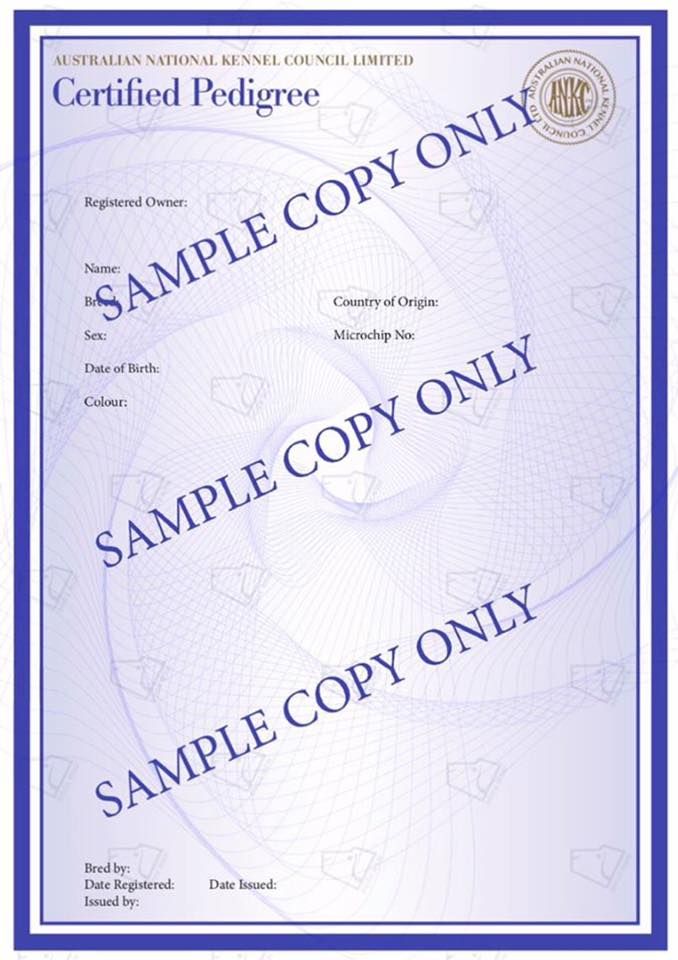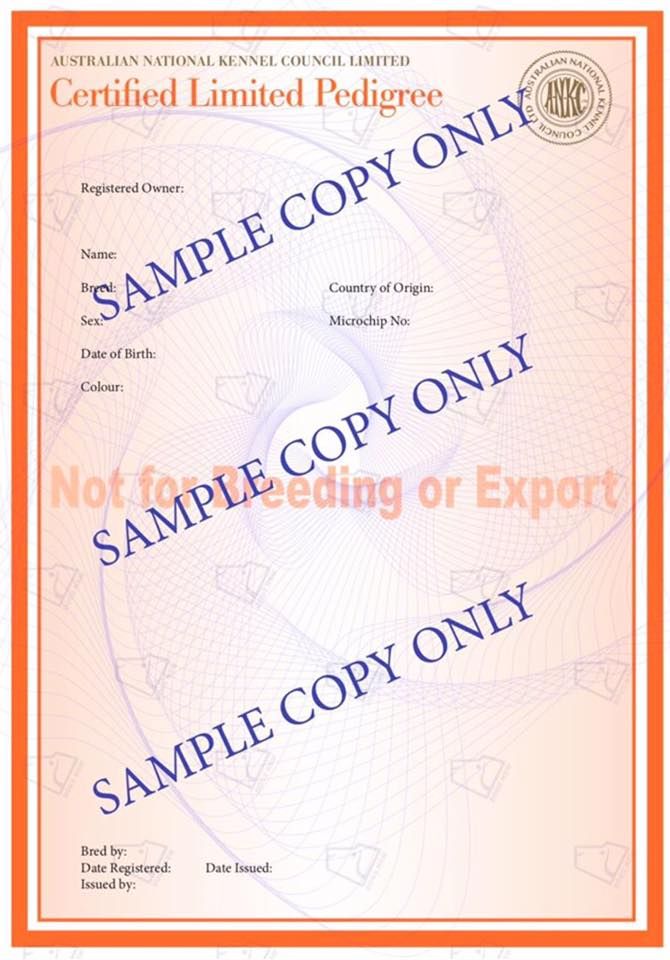Why are registration papers important?
"We've found cheaper, without papers, which is ok. Because, it’s just going to be a family pet.” “We don't care about papers, it's just going to be a pet" "We're not looking for a show dog, so it doesn't matter if the puppy or it’s parents are papered. We just want a good family pet"
We hear comments like this all too often, people assuming that since their dog will be 'just a pet', that registration papers aren't important. We would argue the exact opposite, let us explain why.
What are registration papers? Registration papers are your dog’s birth certificate. They show a dog’s pedigree, who the parents and grandparents are, thus giving you the opportunity to see and discuss generations of health testing and truly research any genetic issues and temperaments of the dogs in your potential puppy’s pedigree. Papers enable you to research the COI of any line breeding and discuss, you can't do with a non-papered dog, an issue because the genepool for non-papered “purebred” dogs is limited (particularly in Aus) and decreasing. This is due to very few new bloodlines being introduced because ethical breeders, who import new bloodlines, are sterilising pet puppies prior to homing them. The result is a high coefficient percentage of inbreeding in non-papered "purebred" dogs, which gives their offspring a high probability of higher early mortality rates, shorter life spans and genetic defects. So, the suggestion that non-papered dogs are healthier is not exactly true, as without papers, you can't check the COI. Papers also ensure you are getting what you want. Too many times we have seen cross breeds sold as “purebred”, because they resemble a pure-bred dog. While it's litter mate is sold as a cross breed.
So why is all this is so very important? Because not only are health problems expensive, they impact a dog’s temperament; Also, it's a proven fact that temperaments are somewhat genetic, with different breeds having different temperaments and drive, having been bred for many years for different purposes. Some of these temperaments combined can make for an explosive individual. It's not all about what you do, of course that's important too. But, some things a puppy is just born with. Keeping this in mind, have you ever sat down and considered what you actually expect of a dog that is 'just' a pet?
Being a pet is hard work! A puppy must learn quickly to adapt to your world, often with little to no basic obedience. Rules are inconsistent, because there was very little obedience training and the training that was done, the entire family didn't attend. So, everyone is expecting the same result from different instructions and cues. It's no wonder puppy is confused. Puppy also needs to tolerate days in a row of little to no exposure to new environments, no socialisation with new dogs or strangers, just sitting around doing not much at all, while the family is busy with work and school. Then puppy is expected to know what to do and be well-behaved on the weekend when the family decide to take puppy along to the kids footy, the foreshore, a farmer's market or for a run at the off-lead park. Puppy must tolerate random neighbour kids running up to pet him, know how to interact with other dogs and other animals, accept friends coming over for dinner and know it's just the handyman doing repairs (not someone to worry about) - all with a stable and of course discerning temperament. We want them to be a good judge of character and know who the bad guys are after all.
To be a great pet, a dog needs to be fit and healthy, have a rock-solid temperament, a high level of tolerance and a loving but discerning character. No, pedigree papers don't ensure that. But, to get all of that requires generations of health testing and good breeding, with parents that have proven themselves trainable and stable and pedigree papers will prove that.
So, when your start considering bringing a pet into your family and which breeder to choose remember, being 'just a pet' may be one of the hardest things we ask a dog to do.


